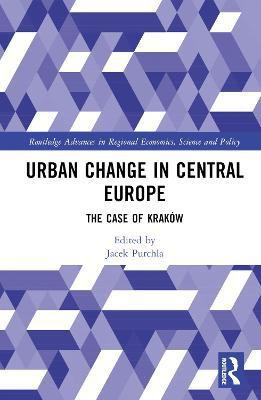Urban Change in Central Europe(English, Hardcover, unknown)
Quick Overview
Product Price Comparison
The changes that Central European cities have undergone since 1989 deserve a complex, interdisciplinary analysis that offers deep insight into the specific nature of the transformation taking place in the region. This book presents a multidimensional and cross-disciplinary case study of Krakow, focusing on the changes taking place in Central Europe over the last three decades. This book answers the question of how the once neglected city of Krakow has transformed into a thriving global tourist destination, an attractive investment market, and a European leader of shared services. It examines political, socio-economic, cultural, and architectural development of the city against the ongoing processes of post-1989 political and economic transition, European integration, and globalisation. The authors offer a portrait of the evolution in thinking about the developmental resources of the city, accounting for what is broadly construed as culture and heritage. Whereas previous studies have offered only one-dimensional insights into these phenomena, this book highlights the specific characteristics of the transition and identifies the challenges typical of many cities in Czechia, Slovakia, Poland, and Hungary, after the fall of communism. This book will be valuable reading for academics, researchers and postgraduate and PhD students of economic geography, urban studies, public management, political studies, sociology, culture and heritage management, and modern history, as well as those with an interest in Central European and transformation issues.


